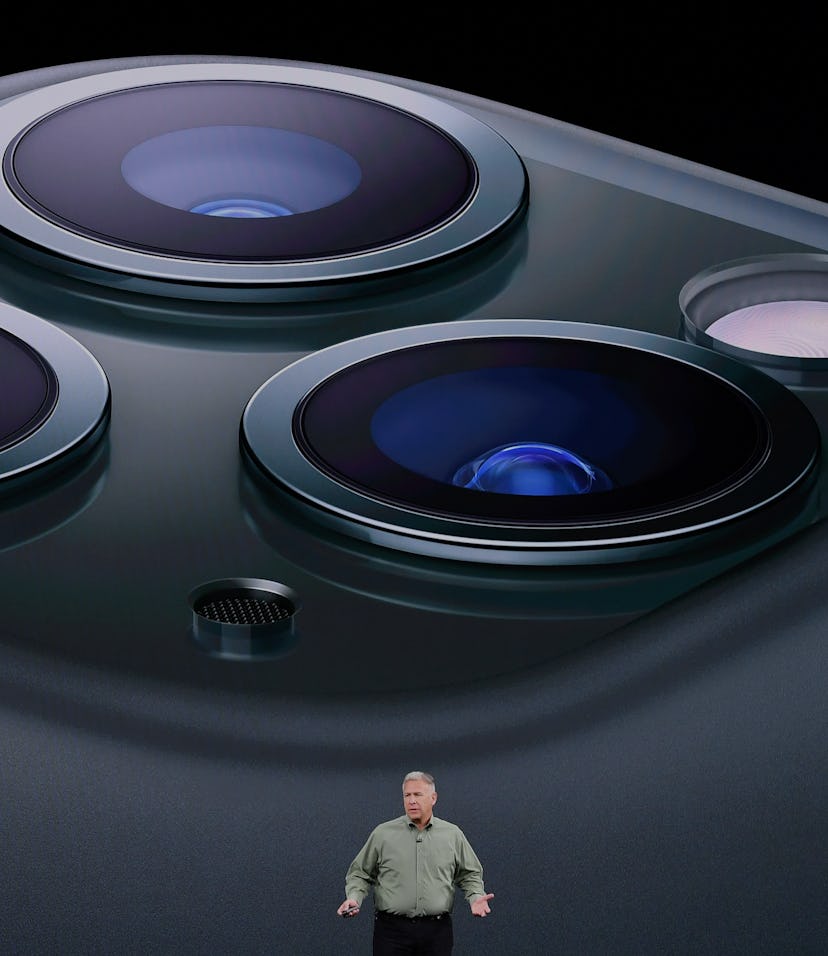Tech
Next year's iPhone could have a 48-megapixel camera, support 8K video
But by 2022 the smartphone camera competition will be even fiercer than it is today. Can Apple keep up?

The 2022 iteration of Apple’s flagship iPhone will be sporting a major camera upgrade, according to beloved leaker Ming-Chi Kuo. The iPhone 14 lineup will include a top-tier smartphone with a 1/1.3-inch 48-megapixel CMOS image sensor for wide-angle shots, as well as native 8K video support.
In a recent note to investors — as reported by AppleInsider — Kuo noted that the upgrade would surpass any currently available iOS or Android devices on the market. “With 12MP output, the CIS pixel size of the new 2H22 iPhone increases to about 2.5um, which is significantly larger than the iPhone 12 and iPhone 13, and larger than existing Android phones, and close to the DSC level,” he wrote.
Apple has always been at the forefront of smartphone camera development, so it wouldn’t be at all surprising if Kuo’s prediction lines up with 2022’s reality. But there’s still about a year and a half until Apple shows off the iPhone 14; we haven’t even seen the iPhone 13 yet. There’s plenty of room for other companies to beat Apple to the punch.
Can Apple stay on top? — The top-of-the-line iPhones take really, really great photos. And they have done so for many years now. Apple’s latest iPhone designs have been, in the words of Input reviews editor Ray Wong, virtually flawless.
But competition is steep in the smartphone market, and camera innovation is one of its most major drivers. Other major smartphone companies are putting out camera arrays with more power and diverse feature sets on their latest offerings. Samsung’s Galaxy S21 Ultra has a ludicrous zoom camera, for example. Oppo, meanwhile, has put a microscope camera in its latest flagship phone.
Apple’s lead is disappearing more quickly with each new smartphone release. Kuo doesn’t even believe the iPhone will have an improved Zoom range until 2023.
No more mini — Kuo’s latest report also includes some bad news for the small phone enthusiasts amongst us: the iPhone Mini will be discontinued at some point in 2022. Instead, Apple will focus on the two standard iPhone sizes, with 6.1-inch and 6.7-inch screens, as well as on the Pro series.
A 48-megapixel camera would be huge for Apple, but Kuo specifies as well that the iPhone Pro’s other lenses — the telephoto one and the ultra-wide one — probably won’t be upgraded to quite that extent all at once. That gives other companies plenty of time to lap Apple’s camera limitations even further.
Of course, the cameras aren’t the only reason people buy iPhones. The quality of apps, iMessage, and cultural cachet the brand holds matter, too. And those continue to be hard to challenge.